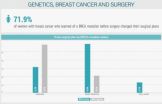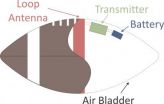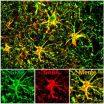(Press-News.org) By now, most people feel comfortable conducting financial transactions on the Web. The cryptographic schemes that protect online banking and credit card purchases have proven their reliability over decades.
As more of our data moves online, a more pressing concern may be its inadvertent misuse by people authorized to access it. Every month seems to bring another story of private information accidentally leaked by governmental agencies or vendors of digital products or services.
At the same time, tighter restrictions on access could undermine the whole point of sharing data. Coordination across agencies and providers could be the key to quality medical care; you may want your family to be able to share the pictures you post on a social-networking site.
Researchers in the Decentralized Information Group (DIG) at MIT's Computer Science and Artificial Intelligence Laboratory (CSAIL) believe the solution may be transparency rather than obscurity. To that end, they're developing a protocol they call "HTTP with Accountability," or HTTPA, which will automatically monitor the transmission of private data and allow the data owner to examine how it's being used.
At the IEEE's Conference on Privacy, Security and Trust in July, Oshani Seneviratne, an MIT graduate student in electrical engineering and computer science, and Lalana Kagal, a principal research scientist at CSAIL, will present a paper that gives an overview of HTTPA and presents a sample application, involving a health-care records system that Seneviratne implemented on the experimental network PlanetLab.
DIG is directed by Tim Berners-Lee, the inventor of the Web and the 3Com Founders Professor of Engineering at MIT, and it shares office space with the World Wide Web Consortium (W3C), the organization, also led by Berners-Lee, that oversees the development of Web protocols like HTTP, XML, and CSS. DIG's role is to develop new technologies that exploit those protocols.
With HTTPA, each item of private data would be assigned its own uniform resource identifier (URI), a key component of the Semantic Web, a new set of technologies, championed by W3C, that would convert the Web from, essentially, a collection of searchable text files into a giant database.
Remote access to a Web server would be controlled much the way it is now, through passwords and encryption. But every time the server transmitted a piece of sensitive data, it would also send a description of the restrictions on the data's use. And it would log the transaction, using only the URI, somewhere in a network of encrypted, special-purpose servers.
HTTPA would be voluntary: It would be up to software developers to adhere to its specifications when designing their systems. But HTTPA compliance could become a selling point for companies offering services that handle private data.
"It's not that difficult to transform an existing website into an HTTPA-aware website," Seneviratne says. "On every HTTP request, the server should say, 'OK, here are the usage restrictions for this resource,' and log the transaction in the network of special-purpose servers."
An HTTPA-compliant program also incurs certain responsibilities if it reuses data supplied by another HTTPA-compliant source. Suppose, for instance, that a consulting specialist in a network of physicians wishes to access data created by a patient's primary-care physician, and suppose that she wishes to augment the data with her own notes. Her system would then create its own record, with its own URI. But using standard Semantic Web techniques, it would mark that record as "derived" from the PCP's record and label it with the same usage restrictions.
The network of servers is where the heavy lifting happens. When the data owner requests an audit, the servers work through the chain of derivations, identifying all the people who have accessed the data, and what they've done with it.
Seneviratne uses a technology known as distributed hash tables — the technology at the heart of peer-to-peer networks like BitTorrent — to distribute the transaction logs among the servers. Redundant storage of the same data on multiple servers serves two purposes: First, it ensures that if some servers go down, data will remain accessible. And second, it provides a way to determine whether anyone has tried to tamper with the transaction logs for a particular data item — such as to delete the record of an illicit use. A server whose logs differ from those of its peers would be easy to ferret out.
To test the system, Seneviratne built a rudimentary health-care records system from scratch and filled it with data supplied by 25 volunteers. She then simulated a set of transactions — pharmacy visits, referrals to specialists, use of anonymized data for research purposes, and the like — that the volunteers reported as having occurred over the course of a year.
Seneviratne used 300 servers on PlanetLab to store the transaction logs; in experiments, the system efficiently tracked down data stored across the network and handled the chains of inference necessary to audit the propagation of data across multiple providers. In practice, audit servers could be maintained by a grassroots network, much like the servers that host BitTorrent files or log Bitcoin transactions.
INFORMATION:
Who's using your data?
New Web technology would let you track how your private data is used online
2014-06-13
ELSE PRESS RELEASES FROM THIS DATE:
Moffitt study shows utilizing genetic health care professional reduces unnecessary testing
2014-06-13
TAMPA, Fla. (June 13, 2014) – A new Moffitt Cancer Center study published Thursday in Genetics in Medicine shows that counseling from a genetic health care provider before genetic testing educates patients and may help reduce unnecessary procedures.
Up to 10 percent of cancers are inherited, meaning a person was born with an abnormal gene that increases their risk for cancer. "Pre-test genetic counseling in which a health care provider takes a thorough family history and discusses the potential risks and benefits of genetic testing is standard of care as recommended ...
BRCA test results affect patients' breast cancer surgery plans
2014-06-13
PROVIDENCE, R.I. [Brown University] —Women diagnosed with breast cancer often face a crucial decision about the extent of their surgical treatment. Many meet national guidelines recommending testing for mutations in the BRCA 1 and 2 genes, which carry a substantial risk of future cancer. A new study reports that among women with breast cancer who undergo recommended testing before surgery, more than 7 in 10 who test positive will change their surgical plan, typically opting for a more extensive procedure such as a double mastectomy and sometimes ovary removal.
"As soon ...
Charity funding study brings alcohol industry influence on UK policy into question
2014-06-13
Five charities in the UK are both active in alcohol policy processes and funded by the alcohol industry, according to a new study published in the European Journal of Public Health.
The study, carried out by researchers at the London School of Hygiene & Tropical Medicine, looks at the relationships between the alcohol industry, charities and policy influence in the UK.
Two of the charities, Addaction and Mentor UK, are the only remaining non-industry, non-governmental members of the Public Health Responsibility Deal's alcohol network – the UK government's initiative ...
New membrane-synthesis pathways in bacteria discovered
2014-06-13
Biologists at the Ruhr-Universität Bochum (RUB) have discovered new mechanisms used by bacteria to manufacture lipids, i.e. fat molecules, for the cell membrane. Those mechanisms are a combination of familiar bacterial synthesis pathways and of such that occur in higher organisms. Thus, the team headed by Prof Dr Franz Narberhaus and Dr Roman Moser has debunked the long-standing theory that lipid production in bacteria differs substantially from that in higher organisms. The results have been published in the journal Molecular Microbiology.
Potential for the pharmaceutical ...
Are female hormones playing a key role in obesity epidemic?
2014-06-13
An imbalance of female sex hormones among men in Western nations may be contributing to high levels of male obesity, according to new research from the University of Adelaide.
In a paper published in the online journal PLOS ONE, researchers from the University's School of Medical Sciences suggest that obesity among Western men could be linked with exposure to substances containing the female sex hormone estrogen – substances that are more often found in affluent societies, such as soy products and plastics.
The research was conducted by University of Adelaide medical ...
Crossing the goal line: New tech tracks football in 3-D space
2014-06-13
Referees may soon have a new way of determining whether a football team has scored a touchdown or gotten a first down. Researchers from North Carolina State University and Carnegie Mellon University, in collaboration with Disney Research, have developed a system that can track a football in three-dimensional space using low-frequency magnetic fields.
The technology could be particularly useful for situations when the ball is blocked from view, such as goal-line rushing attempts when the ball carrier is often buried at the bottom of a pile of players. The technology could ...
Breakthrough for information technology using Heusler materials
2014-06-13
It is the breakthrough that physicists and chemists around the world have long anticipated and it will play a pivotal role in information technology in coming years. Researchers at Johannes Gutenberg University Mainz (JGU) have managed, for the first time, to directly observe the 100 percent spin polarization of a Heusler compound. Heusler alloys are composed of several metallic elements arranged in a lattice structure. They are among those materials that potentially can be used for ever smaller data storage components with ever greater storage capacity. However, doubts ...
Rescue of Alzheimer's memory deficit achieved by reducing 'excessive inhibition'
2014-06-13
A new drug target to fight Alzheimer's disease has been discovered by a research team led by Gong Chen, a Professor of Biology and the Verne M. Willaman Chair in Life Sciences at Penn State University. The discovery also has potential for development as a novel diagnostic tool for Alzheimer's disease, which is the most common form of dementia and one for which no cure has yet been found. A scientific paper describing the discovery will be published in Nature Communications on 13 June 2014.
Chen's research was motivated by the recent failure in clinical trials of once-promising ...
Genotyping can predict disease outcomes in rheumatoid arthritis patients
2014-06-13
New cohort studies presented today at the European League Against Rheumatism Annual Congress (EULAR 2014) have shown the amino acid valine at position 11 of HLA-DRB1 gene to be the strongest independent genetic determinant of radiological damage in rheumatoid arthritis (RA).1 In addition, positions 71 and 74 were found to represent independent predictors, with the three positions together: 11, 71 and 74 strongly associated with disease outcomes.1
According to lead author Dr Sebastien Viatte of the Arthritis Research UK Centre for Genetics and Genomics, Manchester, United ...
Higher health care cost burden of musculoskeletal conditions compared to other diseases
2014-06-13
A new study presented today at the European League Against Rheumatism Annual Congress (EULAR 2014) highlights the increased health care costs associated with musculoskeletal conditions compared to other diseases. Health care costs were almost 50% higher for people with a musculoskeletal condition compared to any other singly occurring condition.1
This disparity remained high where two conditions co-existed, with health care costs still one third higher (36%) for those people with one of their two conditions musculoskeletal in nature, highlighting the significant impact ...
LAST 30 PRESS RELEASES:
Under the Lens: Microbiologists Nicola Holden and Gil Domingue weigh in on the raw milk debate
Science reveals why you can’t resist a snack – even when you’re full
Kidney cancer study finds belzutifan plus pembrolizumab post-surgery helps patients at high risk for relapse stay cancer-free longer
Alkali cation effects in electrochemical carbon dioxide reduction
Test platforms for charging wireless cars now fit on a bench
$3 million NIH grant funds national study of Medicare Advantage’s benefit expansion into social supports
Amplified Sciences achieves CAP accreditation for cutting-edge diagnostic lab
Fred Hutch announces 12 recipients of the annual Harold M. Weintraub Graduate Student Award
Native forest litter helps rebuild soil life in post-mining landscapes
Mountain soils in arid regions may emit more greenhouse gas as climate shifts, new study finds
Pairing biochar with other soil amendments could unlock stronger gains in soil health
Why do we get a skip in our step when we’re happy? Thank dopamine
UC Irvine scientists uncover cellular mechanism behind muscle repair
Platform to map living brain noninvasively takes next big step
Stress-testing the Cascadia Subduction Zone reveals variability that could impact how earthquakes spread
We may be underestimating the true carbon cost of northern wildfires
Blood test predicts which bladder cancer patients may safely skip surgery
Kennesaw State's Vijay Anand honored as National Academy of Inventors Senior Member
Recovery from whaling reveals the role of age in Humpback reproduction
Can the canny tick help prevent disease like MS and cancer?
Newcomer children show lower rates of emergency department use for non‑urgent conditions, study finds
Cognitive and neuropsychiatric function in former American football players
From trash to climate tech: rubber gloves find new life as carbon capturers materials
A step towards needed treatments for hantaviruses in new molecular map
Boys are more motivated, while girls are more compassionate?
Study identifies opposing roles for IL6 and IL6R in long-term mortality
AI accurately spots medical disorder from privacy-conscious hand images
Transient Pauli blocking for broadband ultrafast optical switching
Political polarization can spur CO2 emissions, stymie climate action
Researchers develop new strategy for improving inverted perovskite solar cells
[Press-News.org] Who's using your data?New Web technology would let you track how your private data is used online


